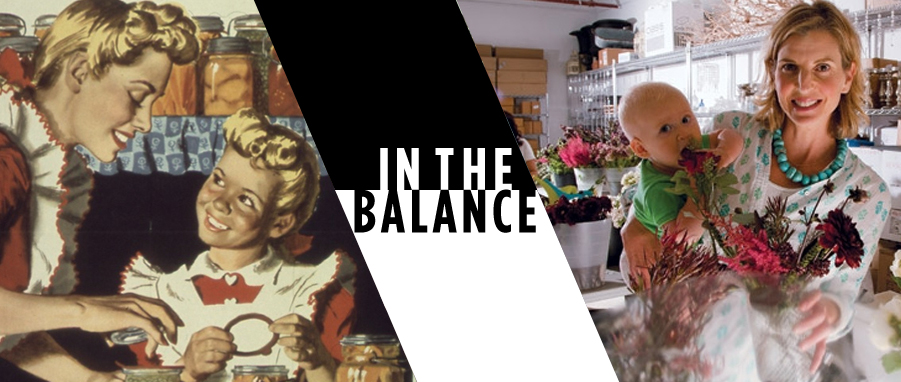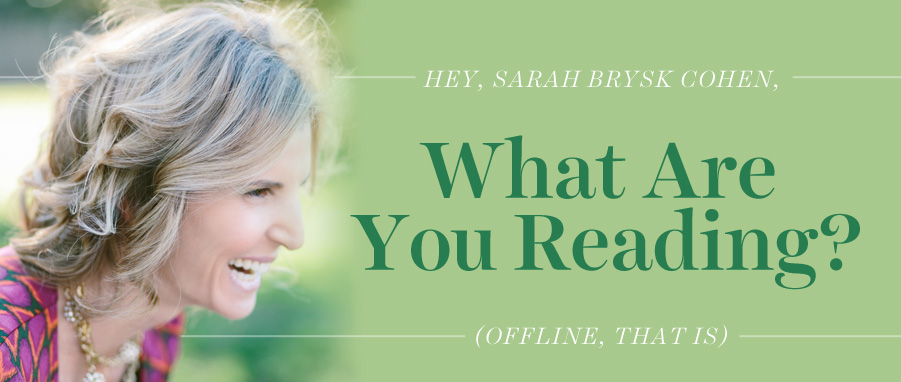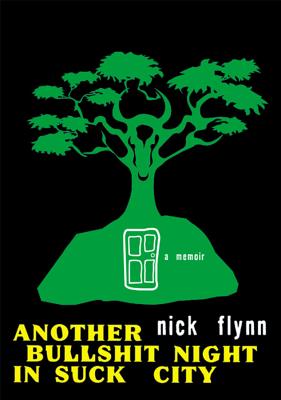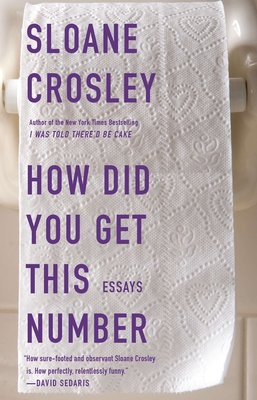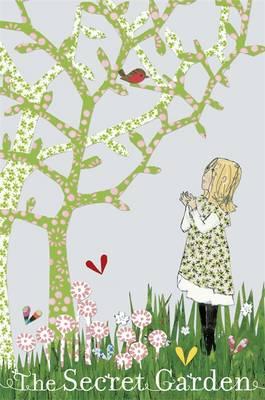I am about the furthest thing from a Catholic imaginable, it's true. But last night I was lying awake feeling guilty for a litany of failings and vices from the past weeks. 'How Catholic of me,' I mused. And this is not to say that my own Jewish culture doesn't have a lot to offer in the guilt department. As I flopped back and forth under the covers, I told myself to stop spinning about my various shortcomings and try to focus on all the ways I might have been effective or kind recently. As so many of us writing here have acknowledged, it is not easy to take those night-time demons to the mat, especially when the hours are small. Part of the struggle is feeling alone, trapped in your mind with what you imagine to be shameful thoughts and deeds.
When I was finally awoken by the chattering of the baby in the early morning, it was something of a relief. As I extracted her from the crib and set about to start the day, I decided I would engage in something of a "confessional" exercise. Perhaps if I purged my consciousness of some of the low moments, I could make room for fresh experiences. Forthwith, a detailing of seven mortal sins of late. Here is hoping that cracking open my humanity can start to heal what ails me. At least it might make you feel superior and then you can write about all the ways in which you experienced Pride :)
Wrath - I am typically fairly internal when it comes to anger, which, if you read any study on health is not ideal. Apparently, people who externalize anger (at least express it, if not outright explode all over the place) tend to have lower levels of depression and can experience improved communication. This article from the American Psychological Association (and there are a host just like it in the literature) describes some adaptive qualities of anger and how to use it to your benefit. At my worst, I employ the tactic of stuffing down things that irritate me and then completely coming unglued over something relatively innocuous much later on down the road. This is totally unproductive and moderately to profoundly confusing for loved ones. I am working on addressing problems in the moment and being honest about my needs. This is tricky and can feel risky to someone like myself who likes to avoid confrontation. But ultimately, the confrontation always happens, just maybe displaced, which is no good for anyone. Onward. Upward.
Greed - I want more time, mostly. Of course, I always desire too many cookies, clothes and earthly possessions, but hours in the day . . . what I wouldn't give. The truth is that I could manage my time better. There is certainly some whiling away the hours on Facebook/Instagram, spending late evenings watching Boardwalk Empire instead of answering emails, iChatting with a friend rather than ordering groceries. The balance of stealing some time to which I feel entitled ("me" time) and organizing the day around prioritizing important tasks is the struggle of all good people, right? And listen to my language: "stealing" some time . . . from what or whom? Still and all, I want more time for work, more time with my family, more time to noodle on the internet. There, I said it.
Sloth - Um, please see Greed. And then sprinkle in all the moments where I sit in the chair at the studio or on the couch at the apartment thinking 'Sarah, stop flipping through the magazine and move on to the next thing.' How about the time last week when I recalled I had read a study somewhere (I'm big on studies) indicating that dogs have fewer allergies when you bathe them less often, so . . . On the whole, I tend to push myself to make it all happen and there are times when I actually take great pleasure in physical labor and menial tasks. There can be a wonderful meditative quality to folding, organizing, washing, etc. But I realize I tell myself that things are just super busy now and fitting it all in will get easier over time. This is, of course, an exercise in self-delusion. Everything will just continue to get busier and the tasks and demands on time will simply compound. Operation Pull it Together in full effect, then.
Pride - I post about 74,000 pictures of my daughter on Facebook every day with captions extolling her adorableness. I talk about her accomplishments (at 9 months, these include things like almost, maybe, no definitely, actually probably not - but it really sounds like it! - uttering, "mmmmm…" when I feed her bites of something) ad nauseum. When people ask me about her I always start with, "She is totally @#!&-ing awesome." Sue me. I am a new mother. I got nothing for you here :)
Lust - There are days when I want power and I want it badly. This is typically applicable in my business. I want to be huge enough and famous enough that clients line up at my door, the phone rings off the hook and my inbox is brimming with messages where the inquiry goes something like this, "We really want to work with you, exclusively and specifically, and as such, we are writing you this check with a large sum. Please deposit this check immediately and then show up on the day of our event with whatever florals and decor you feel are appropriate. Thanks so much." Until then, I suppose I will continue to work really hard to prove myself in the industry, hone my brand, secure the trust of clients and exceed expectations in the execution of events like my business depends on it. Because it does. The mogul situation is still out of reach, as it turns out.
Envy -I always think everyone else has it easier, is doing it better, knows something I don't and so on. I believe this to be a fairly universal issue but it doesn't make it any less potent. I am particularly uncomfortable with this aspect of my personality, as my life is so relatively rosy. As previously discussed, I have greater flexibility and more human and capital resources than most working people. There is real suffering all around me in this big city and my concerns about finding the time to update my website or whether my daughter has enough of whatever thing-of-the-day should consume scant mental energy. No excuses here.
Gluttony - The unending battle with cooking at home and eating "like a real family," wages on. We over-indulge in take-out and restaurant meals where we are inevitably served too much of less healthful food. This is a symptom of multiple larger issues in our house (see above struggles with time management, for example) and the remedies aren't coming easily. I picture us coming together for dinner each night, discussing important matters of the day, laughing, sharing locally sourced food we have lovingly prepared, nourishing our bodies . . . then I scrape the sauce from the (recyclable?) plastic container from Dao Palate onto day-old rice, popping it into the microwave and feel awful. Fill the refrigerator weekly, take a cooking class (or seven), continue to try and carve out the time. How hard could it BE?! HONESTLY.
Well, now I see why people are into this process of recounting wrongs and requesting absolution. It does feel somewhat cleansing. The accountability piece is where things get dicier. Maybe writing it down will catalyze forward motion. And reading it over will help me be a little more gentle with myself as I strive to be a better . . . well . . . everything. Wait, is that Greed or Pride or maybe Lust? Sigh.
(image via)



